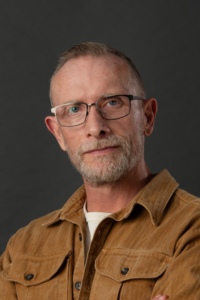My Approach
My approach is fundamentally relational in nature. I prioritise building a safe, consistent and collaborative therapeutic alliance with my patients, recognising that the quality of this relationship is central to meaningful change. Once trust is established, we begin to explore how earlier life experiences and key relationships may be unconsciously shaping current patterns—affecting how clients relate to themselves, others, and the world.
Clinically, I am informed by psychodynamic, attachment-based, and existential theory. My work is grounded in a classical therapeutic frame, but I integrate contemporary thinking on mind-body connection and draw on current research in affect regulation and neuroscience. I approach the psyche as inherently embodied, and I support clients in developing greater awareness of their somatic and emotional experience.
I work with both depth and nuance, recognising that meaningful psychological growth occurs through insight, emotional processing, and the reparation of early relational injuries within the therapeutic relationship itself.
About Me
I am an experienced UKCP-registered integrative psychotherapist offering psychotherapy to both individuals and couples. I have been in clinical practice for over 15 years and have been a full clinical member of the UKCP since 2012.
My training in applied psychology began in 2005. I hold a Postgraduate Diploma in Counselling and Psychotherapy from the Australian College of Applied Psychology (Brisbane), an MA in Counselling and Psychotherapy from Goldsmiths College, University of London, and an Advanced Diploma in Integrative Psychotherapy from Regent’s University London.
My clinical approach is primarily psychoanalytic, with a strong foundation in British object relations theory and attachment theory. I offer open-ended, long-term psychotherapy, typically seeing clients at the same time each week—sometimes more frequently—depending on clinical need.
I believe that psychological healing requires both a thinking and a feeling process. I pay particular attention to the embodied aspects of psychological distress, supporting clients in developing greater awareness of their somatic experience. This can aid in emotional regulation and in processing trauma that has become ‘stuck’ in the body.
While I am trained to diagnose and work with specific mental health conditions, I understand most psychological suffering as being rooted in relational trauma. It is through working through these early, often unconscious experiences that lasting emotional change becomes possible.
My clinical experience includes work in both public and private sectors, including the NHS and four years in a palliative care team, supporting terminally ill patients and their families. Loss and bereavement remain central areas of interest in my practice. I work with a wide range of presenting issues, including depression, anxiety, relationship difficulties, anger, trauma, and existential concerns.
In addition to my formal training, I engage in ongoing professional development in the areas of body psychotherapy, trauma, and neuroscience. I work relationally and collaboratively, tailoring the therapeutic process to each individual client.
Having lived in five countries during my formative years, I bring a cross-cultural awareness to my work and have a particular interest in working with Third Culture Kids (TCK's) and clients navigating identity and belonging across cultures. I welcome clients from all backgrounds, orientations, and lifestyle choices.
Beyond my clinical work, I regularly write and speak about psychotherapy and have been featured in national and international media including the BBC, Huffpost, The Guardian, iNews, Metro and Newsweek.
I offer sessions in person in central Hove and Lewes from Monday to Thursday, with online appointments available on Friday mornings.
I work with
- Couples
- Individuals
- Private healthcare referrals
Special Interests
Like all UKCP registered psychotherapists and psychotherapeutic counsellors I can work with a wide range of issues, but here are some areas in which I have a special interest or additional experience.
Types of Therapies Offered
- Integrative Psychotherapist
What I can help with
Types of sessions
- Face to Face - Long Term
- Online Therapy
Hove Office
Brighton and Hove Psychotherapy49 Church Road
Hove BN3 2BE
UK
Wheelchair accessible View Map
Cost:
Individuals: Sliding scale from £85-£100 per sessionCouples: £90 per session
Lewes Office
Brighton and Hove Psychotherapy - LewesStar Brewery
Studio 22
Lewes BN7 1YJ
UK
Wheelchair accessible View Map
Cost:
Sliding scale from £85-£100 per sessionCouples: £90 per session
UKCP College
- Humanistic and Integrative Psychotherapy College (HIPC)


